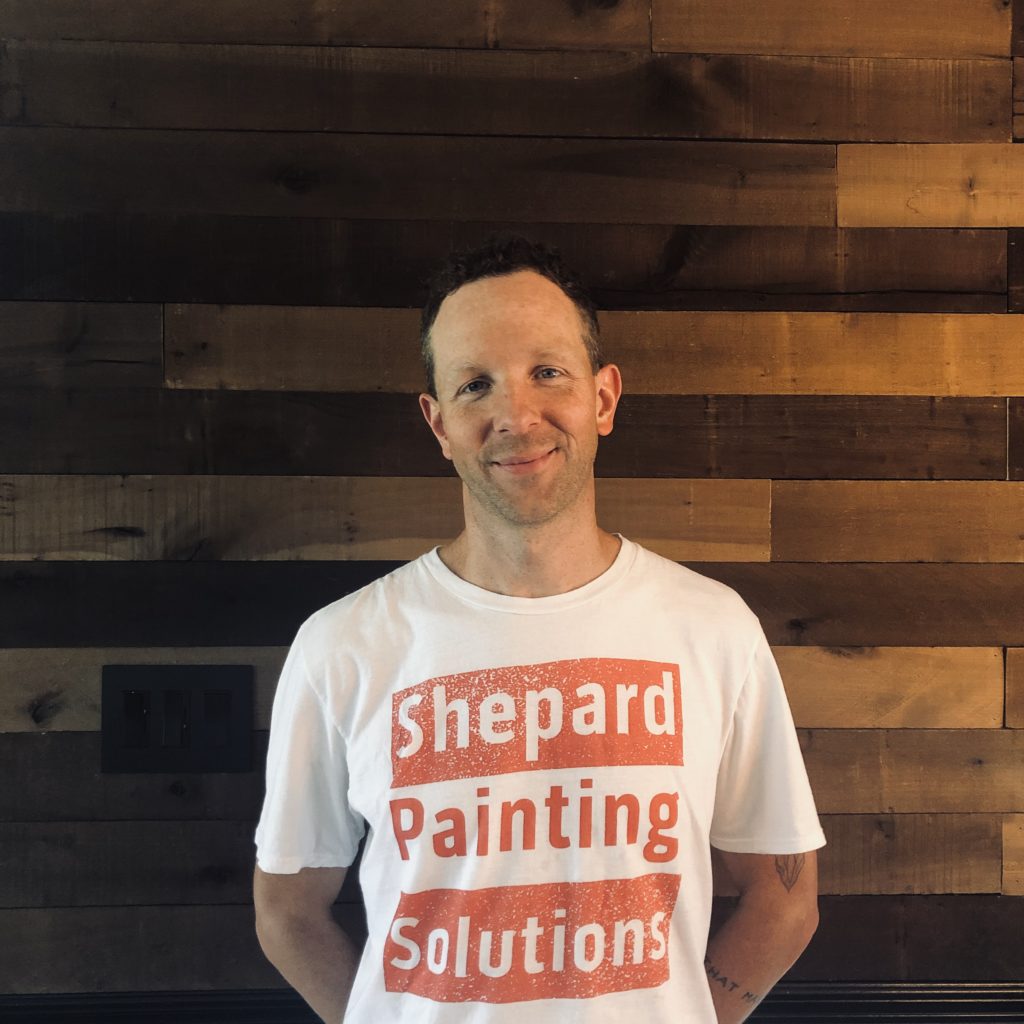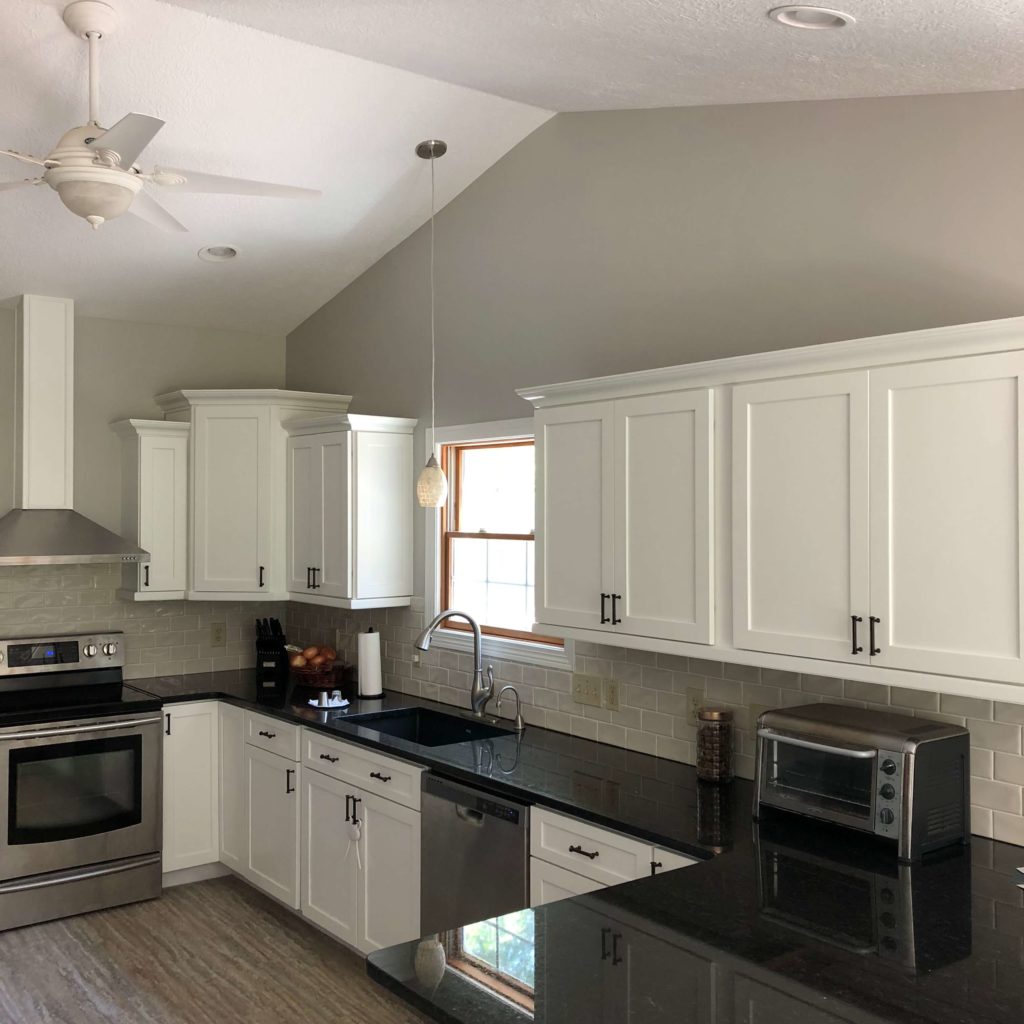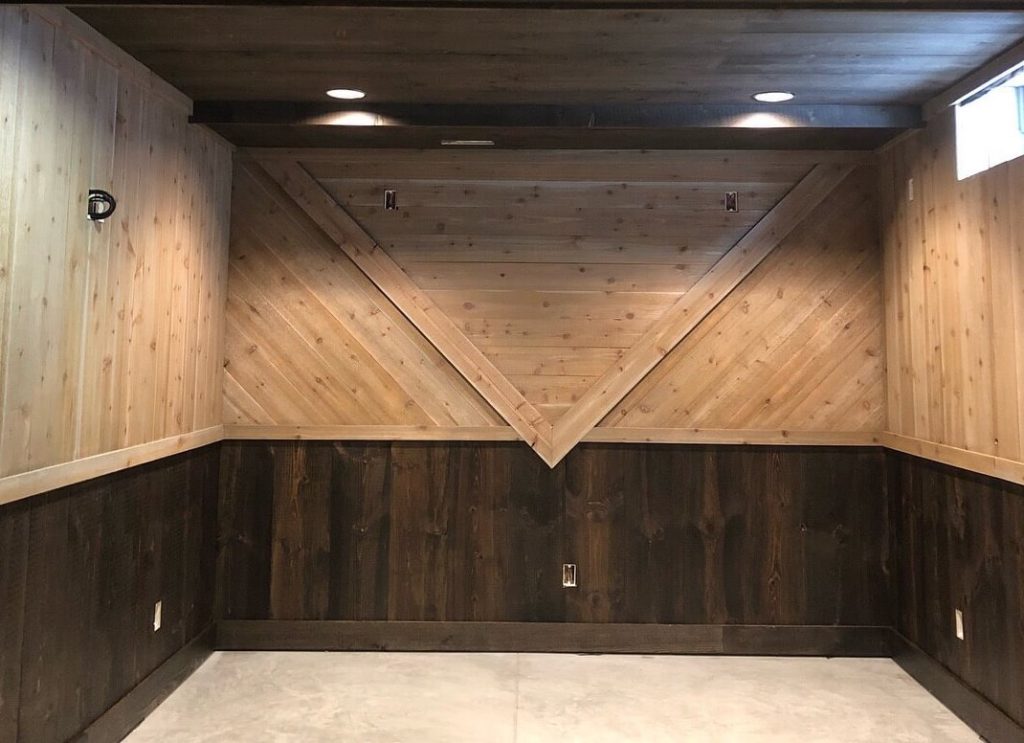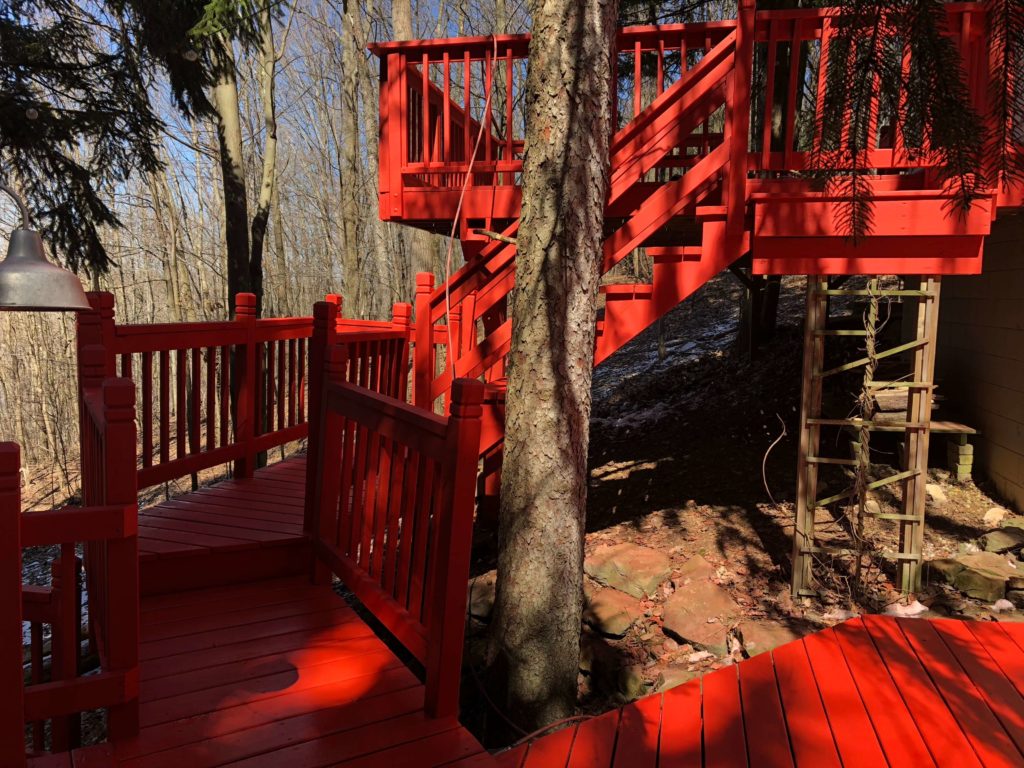We thought we’d do something a little bit different here on the ol’ Spark Marketer blog and feature a small business. Getting a look at things from the POV of those in the home services industry helps us stay informed, so we can better serve our clients. The moment we stop listening and being curious about what our clients are going through, what their challenges are, and what their goals are, is the moment we become unhelpful and irrelevant.
So, let’s dive in for a quick interview with Michael Shepard, owner/operator of Shepard Painting Solutions, an interior and exterior residential painting company in Louisville, OH.
Full disclosure: I’m sleeping with him. He’s my husband.

Introduce yourself and tell us a little bit about you, your business, and how you came to be the owner/operator of Shepard Painting Solutions.
My name’s Michael Shepard and I’m the owner/operator of Shepard Painting Solutions, a full service interior and exterior residential painting company servicing Louisville, OH and all surrounding areas.
Painting was a summer job for me — starting out about 15 years ago — that I always went back to between touring with my band. I worked for a local company that did interior and exterior residential painting and new construction here in Ohio. And that was really how I learned the skills of the trade. I never thought of it as a potential career until much, much later.
I guess at some point in time it sort of switched over and became something that I enjoyed doing. I began to enjoy the craft of painting instead of just thinking of it as a means to a paycheck. And I think that’s when I first started considering painting as a profession — when I learned to appreciate the skill of the craft and trade of painting.
What do you think changed? What flipped that switch for you?
I guess by random occurrence it was from doing a few jobs on my own, where I got to interact directly with the customer myself, and do the job start to finish. So everything was completely dependent upon me.
Do you think that made you take more pride in the work?
Absolutely.
What do you think business owners can do (if anything) to make employees feel that sense of pride and ownership?
Trust your employees enough to give them more responsibility and relinquish some of your control, so that they can feel the satisfaction of doing the job completely themselves. Still oversee everything directly, but assign more responsibility to employees to where they’re held accountable directly for their work. Reaping the reward of hard work will kind of force your employees to respect the work more.

So, perhaps where business owners fail is that they readily place the blame on employees when things go wrong, but the ownership goes to the boss for a job well done? They have all the risk but none of the reward?
Right.
If I had an employee and their skill was at a level where I thought they were ready to experience that feeling of ownership and satisfaction, I would do the introduction between the painter and homeowner, but I wouldn’t necessarily do anything else. I’d assign the job to them, let the homeowner know I’m here to oversee everything, but that he’s an excellent painter and he’s going to take care of the job from start to finish. Then I’d let him do the work.
If my boss had brought me to a job, introduced me to a customer and said, “This is Michael, he’s an excellent painter. He’s going to be painting your bedroom today. I’ll be back at the end of the day to make sure everything is perfect, but he’ll take great care of you.”…that would make me feel like, “I can do this. The power to satisfy the client is in my hands and I need to make sure it’s done well.”
Do you think that empowering your employees and letting them get a taste of that feeling would actually cause them to leave? Maybe they would realize they can do everything themselves and don’t need you?
Maybe. Maybe not. Not everyone is in the game to start their own company. I guess it totally depends on your mindset for your business, but I think it’s worth the risk. If you have the mindset that you want to train people to the point where they are good enough to go out on their own and you empower your employees, you’re probably going to attract better people.
If they can see the job as an opportunity with a clear trajectory — going from no skills to getting the training needed to potentially go out and start their own business — they’re going to find that attractive, I think. Kind of the same way people think of college…when I get out, I’ll have more opportunities. It’s the same concept, just more practical.
“If you have the mindset that you want to train people to the point where they are good enough to go out on their own and you empower your employees, you’re probably going to attract better people.”

Speaking of the switch from a summer job to a career and the feeling that you get to experience with a customer, can you think of one of your earliest or most memorable times when you felt that?
Yeah, actually. I don’t remember the client’s name, but the painting company that I worked for in Nashville, my boss there was kind of a shady character and I didn’t particularly like working for him. And I feel like the clients didn’t particularly like him either — or at least a lot of clients didn’t.
But I remember that one specific job, I was sent to do the job, and the client commented and said that she really liked my work but she didn’t really like dealing with him. So she asked if she could just hire me directly and work just with me. I think that was the first time I had the thought that, “Wow I should just do this myself.”
So, even though you’re the type of person who had the drive and the self-motivation to run your own business, you may not have thought to leave and go out on your own if the company you worked for was better?
Well yeah, because I had no idea. To me that wasn’t even a possibility. I didn’t know how to just go out and get clients. I never thought about it before. I feel like that was the starting out point, because that happened on a few different occasions working for that company, where people liked my work, they liked me, so they wanted to work with me directly and not work with my boss. That’s how I got my first few clients in Nashville, and from there, word spread word-of-mouth and I was able to go out on my own.
What was the toughest part of that transition from being an employee to being everything?
Not knowing where the next job was gonna come from. Being uncertain of your paycheck.

What has been the biggest surprise to you as your business has grown?
The biggest surprise? That it’s far simpler to have a really great business than I thought it would be. At least in this type of industry, a skilled trade industry. Because someone’s paying you to do a job that, essentially, if you do it well, you do what you say you’re going to do, you treat your clients with respect, and you’re professional, then I mean, that’s it. It’s easy to excel. Ok, maybe I shouldn’t say it’s easy, but the bar is set pretty low. It’s unfortunate that the bar’s set so low in the painting industry, but it’s like, if you’re clean cut, you’re responsible, and you’re honest, you’re better than 90% of the other businesses out there.
“It’s unfortunate that the bar’s set so low in the painting industry, but it’s like, if you’re clean cut, you’re responsible, and you’re honest, you’re better than 90% of the other businesses out there.”
What has been the toughest lesson you’ve learned going out on your own and growing your business?
The toughest lesson I guess is probably more on the technical end of the job, in regard to the business stuff. Like understanding how to schedule, how to keep jobs flowing so that you don’t get bogged down. Being able to spread things out enough, but not keeping clients waiting at the same time. That’s been the hardest thing to sort of figure out and balance, I guess.
Would you say that’s the biggest challenge at the level you’re at?
Yes, I would say that’s the biggest challenge for me right now, given that I’m the owner/operator and I have no employees. So I’m doing all of the scheduling and doing all the work. To make sure I’m not spreading myself too thin and that I’m able to accomplish jobs in a timely fashion. Basically, avoid burnout.
What are your goals for the business? Some people like to stay small while others want to grow to like 10, 20 trucks. Where do you see the business going?
I actually don’t know yet. I’ve heard cautionary tales from other contractors that I’ve worked with who have gotten their businesses so big that it was too stressful and they had to downsize. Which sounds like a good problem to have, but I feel like it wouldn’t be. So I’d rather grow slowly and just bring people on that I know and trust, and then see where it gets to, and how I feel about it.
Because it’s such a foreign concept to me, I can’t fathom the idea right now of having 10 Shepard Painting Solutions trucks running around doing 70 jobs. I just don’t know how I’d handle that. Right now I like the idea of having a small crew that’s going to cut down my job time from say, a week that it would take just me, to two days because I have three helpers. That, to me, is appealing. I think the most important thing is to never lose that intimacy with the clients. So that would be the challenge of growing…keeping that intact.
“I think the most important thing is to never lose that intimacy with the clients. So that would be the challenge of growing…keeping that intact.”

When you are ready to hire or bring on that first person, what will you look for?
One major one is what their intention is for work. I wouldn’t want to hire someone who is just like, “Oh yeah, I just need a paycheck.” Because I feel like to be a good painter and to stand out in this profession, you really do have to have a sense of pride in what you’re doing. To do it well. Because there are corners that can be cut. But what makes you good is choosing not to cut them. Especially when no one’s watching.
There’s the type of person that wouldn’t cut corners just because they’re afraid of getting caught or because their boss is watching. And then there’s the type of person that won’t cut corners for their own pride. They won’t do it because they know it’s not the right thing to do. Their own convictions won’t allow them to cut corners. That’s the kind of person I would want.
But I think that would be the hardest trait to judge in a person. There’s probably a test I could come up with. I’ll have to figure it out.
I feel like some people are like, ‘Oh, you have to cut corners to go fast.’ That’s not true. Finding ways to be more efficient is my daily goal. I try to figure out ways to do things quicker, but still keep the quality at the same level. It has nothing to do with cutting corners.
Other things I would look at are appearance, professionalism, and how well spoken they are.
So many times I’m in situations where I go into people’s homes, and it might even be our first job together, and a lot of people just trust me. They give me the garage code and say things like, “I trust you.”
But I feel like they do that because I’m very professional. I act professional. I look professional. I know what I’m talking about. And chances are they’ve gotten a recommendation from someone they know. So if I send someone in there on behalf of my company, they have to be an extension of me. They have to be trustworthy and professional.
My first two questions would be 1. How long have you been painting? 2. Are you a smoker. If they said they were a smoker I wouldn’t hire them, flat out.
“Because I feel like to be a good painter and to stand out in this profession, you really do have to have a sense of pride in what you’re doing. To do it well. Because there are corners that can be cut. But what makes you good is choosing not to cut them. Especially when no one’s watching.”
Would you hire someone without experience if they were a total package otherwise?
Yeah. If they had the right attitude, I would train somebody. In a lot of circumstances I could see how that would actually be preferred, instead of un-training somebody with a lot of bad habits.
Thanks Michael!
Want to have your business featured on the Spark Marketer blog? Reach out to me at jessica@sparkmarketer.com!